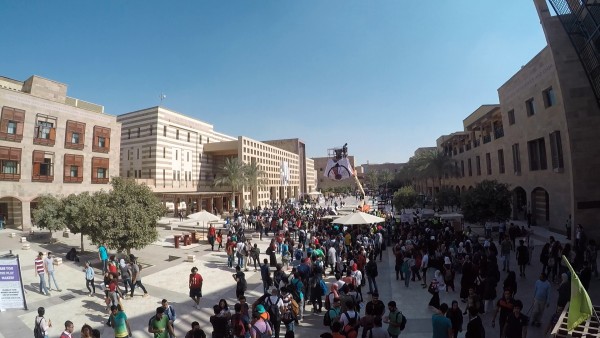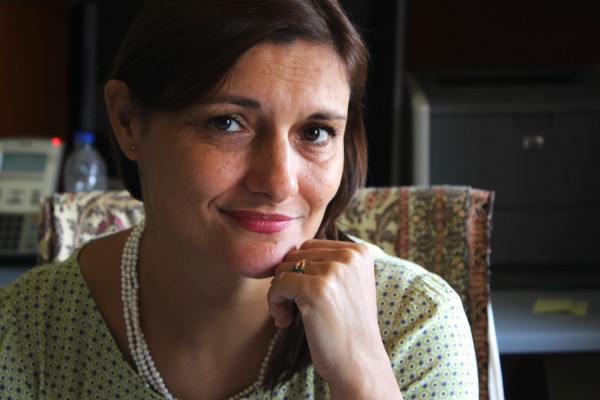Toxicity in Media: Traumatic or Essential?
By: Kenzy Hesham and Mariam Amgad
Photographer: Jumana Labib
As Muslims in the Arab Middle East approach the holy month of Ramadan, many are wondering what the seasonal media industry will provide in the form of entertainment, variety/reality shows, religious programming, and all too popular drama and serials.
If recent years are anything to go by, audiences can expect an unhealthy dose of infidelity, domestic and drug abuse, narcissism, murder and violence, and social and psychological manipulation, all working to influence social behavior and how real-life relationships are approached, media experts say.
In most Egyptian dramas, at least one character – if not more – is modeled as the cheating, abusive or manipulative partner. These depictions have grown so prevalent on Egyptian television that they are even embedded in comedy films or series.
“Much like with any type of content out there, the more we get exposed to one narrative, the more cultivated that narrative becomes in our minds,” says adjunct professor Salma ElGhetany, at the department of Journalism and Mass Communication.
“By the time, people become more desensitized to a particular narrative they follow a lot in the media,” she added.
Even though the media determines which issues are given the most attention, people form their own opinions. The media could highlight unhealthy relationships, but it doesn’t tell people how to feel about them.
“The media is very powerful, this is for sure, but its powers are governed by a person’s level of control over them. How and to what extent this exposure gets reflected in people’s real relationships has a lot to do with other nature and nurture factors,” said ElGhetany.
El Ghetany goes on to explain that these factors include the values and morals parents engrave in their children, the environment children grew up in, and whether they may be more genetically inclined to adopt certain behaviors. We also need to consider that people may not be aware of how influential these factors are in influencing their behavior.
“Audiences consuming such content would certainly be more likely to think of these issues but do not necessarily copy them. Otherwise, there would be much higher rates of crime and violence considering our entertainment diets,” added Sarah El-Richani, assistant professor in the department of Journalism and Mass Communication.
Furthermore, it is important to consider the age of the audience consuming the media. Children, who are subjected to such toxicity, will, most likely, suffer the consequences of it more than adults.
“Exposure of children to such portrayals could indeed be harmful, but it is unlikely that watching some of these movies would impact the way adults approach their personal relationships,” said El-Richani.
There has been controversy about certain programs in the media; for instance, Doaa Farouk, a TV anchor on Al-Nahar, has criticized the illogical depictions in the serial Azmat Montasaf Al Omr (Midlife Crisis) saying that “drama can represent the fact that society suffers from mental illness and numerous unjustified behaviors, but in the end, there should be consequences and encouragement for acceptable behavior”.
On the other hand, the characters in adaptations aren’t fictional – they are based on real people and events. It is the media’s job to burst our bubble of innocence and expose us to what is happening around us: both the good and the bad.
“Media tries as much as it can to copy parts of reality. People when they see these things, they think that they are exaggerating, especially if the person didn’t go through these situations,” explains Dr. Nancy Maher, a certified relationship and life coach.
“However, from my experience as a counselor, a big part of what is presented in the media is based on real events.”
Some of these real events include trauma, depression, and other mental health issues which are not usually discussed. Ramadan TV programs were the first to open a small crack for the public to openly discuss them.
Mahitab Yousry, a freshman, previously told The Caravan that she discovered that she has ADHD after watching the series Khali Balek men Zizi (Beware Zizi), as she found some symptoms matching with ZIzi’s character in the series, which was portrayed by the Egyptian actress Amina Khalil, aired last Ramadan.




